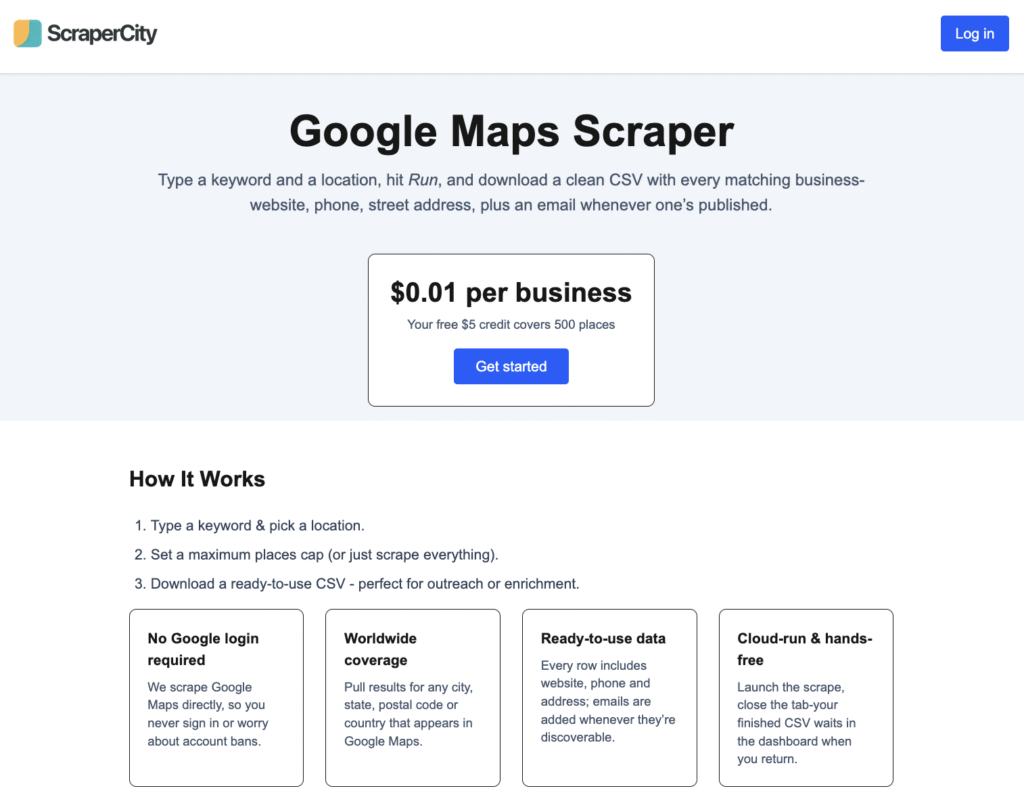
Accurate contact information and verified business details are the foundation of every successful marketing campaign. Yet collecting this data manually from multiple sources can take days, sometimes weeks. That’s why companies increasingly rely on a Google Maps scraper to automate the process. The tool simplifies lead research, offering structured data that can directly fuel marketing and sales pipelines. For modern businesses, it has quietly become one of the most efficient data collection resources available.
Why Google Maps Data Is Valuable
Every business listing on Google Maps carries structured information such as business name, address, phone number, website, category, and customer rating. This data is updated frequently, making it an excellent source for sales prospecting and market analysis. Using a business data extraction tool, marketers can transform these listings into actionable contact databases. Whether you’re targeting cafes, real estate firms, or clinics, scraping data from Maps provides a clear picture of the market landscape.
How Scraping Helps Identify Opportunities
When you extract business leads from Google Maps, you’re not just collecting random listings. You’re uncovering patterns and insights that show where potential demand exists. For example, a digital agency can find restaurants with no listed website or a marketing consultant can locate service providers that haven’t claimed their Google profile. Each piece of missing information hints at a possible lead. This strategy allows businesses to reach out with highly relevant solutions instead of generic offers.
Streamlining Lead Generation Efforts
The difference between guesswork and precision in outreach often lies in data quality. With an automated Google Maps scraper, you can quickly build verified lists categorized by region or business type. Instead of spending hours browsing Google manually, teams can focus on actual engagement. The scraper filters out irrelevant data, ensuring every lead in your CRM meets specific criteria such as industry, rating, or location. It’s an efficient way to target only high-value prospects.
Integrating Automation with Sales Workflows
Once you have the data, integration is key. Many Google Maps automation software solutions allow you to export data into spreadsheets or CRMs like HubSpot or Zoho. This seamless transfer means your sales team can start contacting leads immediately without wasting time on formatting or cleaning data. Combined with automated email outreach tools, this process builds a consistent lead funnel with minimal human intervention.
Learn More About Reliable Scraping Tools
Choosing the right tool is crucial for accurate and consistent results. A reputable option for businesses is available at https://scrapercity.com/google-maps-scraper where you can see how scraping solutions are used to collect verified business data efficiently. It provides information on how automation can be customized to extract location-based leads, categorize results, and export them for sales and marketing use.
Smart Ways to Use Scraped Data
Once you’ve collected data, there are many creative ways to apply it. Businesses often use scraped lists for competitor research, checking how other local brands are performing based on ratings or reviews. Service-based companies use it to identify areas with few competitors and high customer demand. You can even use this information for localized SEO, targeting regions with verified business addresses for better search engine visibility. These applications turn simple data into a strategic resource for growth.
Maintaining Data Accuracy Over Time
Business data changes frequently as companies relocate, close, or rebrand. That’s why periodic updates are essential. Most advanced scrapers include features that allow you to refresh datasets automatically. This ensures that your marketing lists always contain current information, reducing wasted effort on outdated leads. Clean data directly translates into better campaign performance, higher response rates, and a more efficient sales cycle.
Tips for Ethical and Efficient Scraping
While scraping tools are powerful, using them responsibly is important. Always focus on public data and avoid violating any terms of service. Respecting privacy and transparency builds trust with potential clients. Also, avoid scraping excessive amounts of data at once, as smaller batches improve accuracy and performance. A structured, ethical approach keeps your operations compliant while still maximizing output.
Conclusion
A Google Maps scraper is no longer just a data collection tool. It’s a practical resource that fuels targeted lead generation, supports market research, and empowers data-driven decision-making. By combining automation with strategic marketing insight, businesses can reach the right prospects faster and with greater accuracy. For agencies, startups, and enterprises alike, mastering this approach means spending less time searching for leads and more time turning those leads into loyal customers.
also read: Launch Your Licensed Crypto Business
